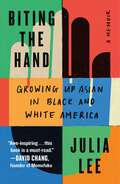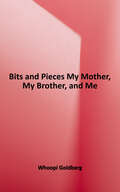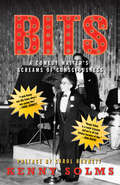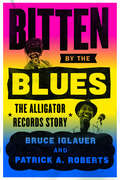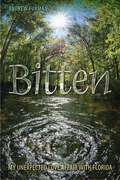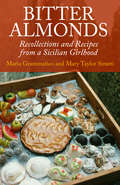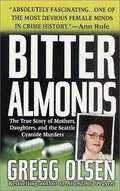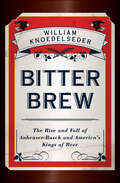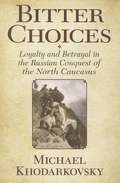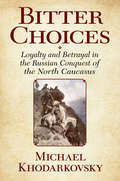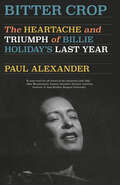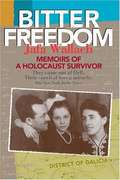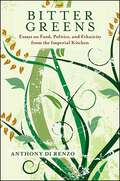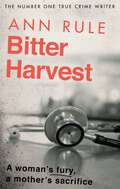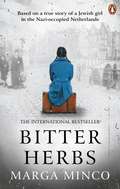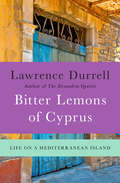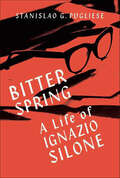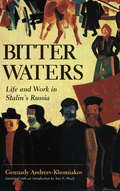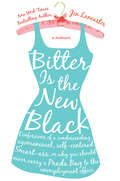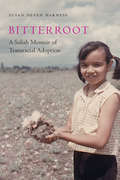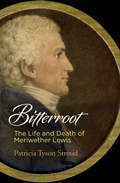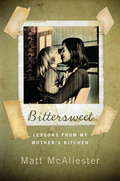- Table View
- List View
Biting the Hand: Growing Up Asian in Black and White America
by Julia LeeJulia Lee is angry. And she has questions.What does it mean to be Asian in America? What does it look like to be an ally or an accomplice? How can we shatter the structures of white supremacy that fuel racial stratification?When Julia was fifteen, her hometown went up in smoke during the 1992 Los Angeles riots. The daughter of Korean immigrant store owners in a predominantly Black neighborhood, Julia was taught to be grateful for the privilege afforded to her. However, the acquittal of four white police officers in the beating of Rodney King, following the murder of Latasha Harlins by a Korean shopkeeper, forced Julia to question her racial identity and complicity. She was neither Black nor white. So who was she?This question would follow Julia for years to come, resurfacing as she traded in her tumultuous childhood for the white upper echelon of elite academia. It was only when she began a PhD in English that she found answers—not through studying Victorian literature, as Julia had planned, but rather in the brilliant prose of writers like James Baldwin and Toni Morrison. Their works gave Julia the vocabulary and, more important, the permission to critically examine her own tortured position as an Asian American, setting off a powerful journey of racial reckoning, atonement, and self-discovery.With prose by turns scathing and heart-wrenching, Julia lays bare the complex disorientation and shame that stem from this country’s imposed racial hierarchy. And she argues that Asian Americans must work toward lasting social change alongside Black and brown communities in order to combat the scarcity culture of white supremacy through abundance and joy. In this passionate, no-holds-barred memoir, Julia interrogates her own experiences of marginality and resistance, and ultimately asks what may be the biggest question of all—what can we do?
Bits and Pieces: My Mother, My Brother, and Me
by Whoopi GoldbergFrom multi-award winner, Whoopi Goldberg comes a new and unique memoir of her family and their influence on her early life. If it weren't for Emma Johnson, Caryn Johnson would have never become Whoopi Goldberg. Emma gave her children the loving care and wisdom they needed to succeed in life, always encouraging them to be true to themselves. When Whoopi lost her mother in 2010--and then her older brother, Clyde, five years later--she felt deeply alone; the only people who truly knew her were gone. Emma raised her children not just to survive, but to thrive. In this intimate and heartfelt memoir, Whoopi shares many of the deeply personal stories of their lives together for the first time. Growing up in the projects in New York City, there were trips to Coney Island, the Ice Capades, and museums, and every Christmas was a magical experience. To this day, she doesn't know how her mother was able to give them such an enriching childhood, despite the struggles they faced--and it wasn't until she was well into adulthood that Whoopi learned just how traumatic some of those struggles were. Fans of personal memoirs such as Finding Me by Viola Davis and In Pieces by Sally Field will be touched by Bits and Pieces: a moving tribute from a daughter to her mother, and a beautiful portrait of three people who loved each other deeply. Whoopi writes, "Not everybody gets to walk this earth with folks who let you be exactly who you are and who give you the confidence to become exactly who you want to be. So, I thought I'd share mine with you."
Bits: A Comedy Writer's Screams of Consciousness
by Kenny SolmsAnne Frank wrote her diary. A yawn. Alex Haley wrote about his roots. A snooze. The Bible. What a bore! But what do all these have in common? That's obvious. They're not funny and the people they wrote about aren't current. Where's Bieber? Jolie? Beyonce? That's who people want to read about and laugh about. Celebrities! And not written by the celebrities themselves. What do they know? If they were smart, they wouldn't have become celebrities in the first place. Who really knows their stories?It's the writer! The guy who was there in the trenches, the guy who made them famous in the first place. Actors and actresses didn't write their lines. It was the writer!Who knew these stars before they became egomaniacs? Before they even knew the difference between Calistoga or Evian? The difference between dark chocolate or milk? Who told them what to say and how to say it? Writers, writers, writers!Kenny Solms has seen them all. He wrote and schmoozed with the best of them. Co-creating the Carol Burnett show in the late 60s, he's written for practically all of them. (However, he has yet to meet Leonardo DeCaprio). Solms wrote their movies, their TV shows. . . . even their "spontaneous" quotes. From the greats like Jack Benny and George Burns to Willard Scott and downwards. But then back up again. And that's quite a leap. He's the one whose bits Lucille Ball uttered. He got Bill Cosby his laughs. Sure, he made millions doing it and garnered a few Emmys as well, but is he cocky? Not remotely. In this Hollywood "tell-all" book, he documents his rise from the Emmy award-winning "Carol Burnett Show" to his doldrums writing for Hugh Hefner's "Roller Disco-Rama Plus a Preview of the Playmate of the 80s. " From the booms to the boobs. From the genius of Michael Jackson tothe hilarity of Joan Rivers, Solms seems to know everybody. Streisand, Sammy Davis Jr. , Neil Diamond. He's written for them all. Even the Muppet, Miss Piggy, who he claims was a bitch. But this book isn't namedropping. Jack Nicholson is one of his best friends. Or malicious gossip. Placido Domingo hitting on Carol Burnett. It's not even a vicious tell-all but tell all, he does. A funny romp that takes you from Philadelphia to Hollywood. A cruise behind the Hollywood scenes, down the freeways, up the canyons and then some. From variety shows to sitcoms, from big star specials to Broadway, he shares his roller coaster ride from writing tacky one-liners to creating TV classics. And what a ride! Jump in the passenger seat and share it with him.
Bitten by the Blues: The Alligator Records Story (Chicago Visions and Revisions)
by Bruce Iglauer Patrick A. RobertsIt started with the searing sound of a slide careening up the neck of an electric guitar. In 1970, twenty-three-year-old Bruce Iglauer walked into Florence’s Lounge, in the heart of Chicago’s South Side, and was overwhelmed by the joyous, raw Chicago blues of Hound Dog Taylor and the HouseRockers. A year later, Iglauer produced Hound Dog’s debut album in eight hours and pressed a thousand copies, the most he could afford. From that one album grew Alligator Records, the largest independent blues record label in the world. Bitten by the Blues is Iglauer’s memoir of a life immersed in the blues—and the business of the blues. No one person was present at the creation of more great contemporary blues music than Iglauer: he produced albums by Koko Taylor, Albert Collins, Professor Longhair, Johnny Winter, Lonnie Mack, Son Seals, Roy Buchanan, Shemekia Copeland, and many other major figures. In this book, Iglauer takes us behind the scenes, offering unforgettable stories of those charismatic musicians and classic sessions, delivering an intimate and unvarnished look at what it’s like to work with the greats of the blues. It’s a vivid portrait of some of the extraordinary musicians and larger-than-life personalities who brought America’s music to life in the clubs of Chicago’s South and West Sides. Bitten by the Blues is also an expansive history of half a century of blues in Chicago and around the world, tracing the blues recording business through massive transitions, as a genre of music originally created by and for black southerners adapted to an influx of white fans and musicians and found a worldwide audience. Most of the smoky bars and packed clubs that fostered the Chicago blues scene have long since disappeared. But their soul lives on, and so does their sound. As real and audacious as the music that shaped it, Bitten by the Blues is a raucous journey through the world of Genuine Houserockin’ Music.
Bitten: My Unexpected Love Affair with Florida
by Andrew FurmanWhen Andrew Furman left the rolling hills of Pennsylvania behind for a new job in Florida, he feared the worst. While he’d heard much of the fabled “southern charm,” he wondered what could possibly be charming about fist-sized mosquitoes, oppressive humidity, and ever-lurking alligators.It wasn’t long before he began to notice that the real Florida right outside his office window was very different from the stereotypes portrayed in movies, television, and even state-promoted tourism advertisements. In Bitten, Furman shares his amazement at the beautiful and the bizarre of his adopted state. Over seventeen years, he and his family have shed their Yankee sensibilities and awakened to the terra incognita of their new home.As he learns to fish for snook—a wily fish that inhabits, among other areas, the concrete-lined canals that crisscross the state—and seeks out the state’s oldest live oak, a behemoth that pre-dates Columbus, Furman realizes that falling in love with Florida is a fun and sometimes humbling process of discovery. Each chapter highlights a fascinating aspect of his journey into the natural environment he once avoided, from snail kites to lizards and cassia to coontie.Sharing his attempts at night fishing, growing native plants, birding, and hiking the Everglades, Furman will inspire you to explore the real Florida. And, if you aren’t lucky enough to reside in the Sunshine State, he’ll at least convince you to unplug for an hour or two and enjoy the natural beauty of wherever it is you call home.
Bitter Almonds
by Mary Taylor Simeti Maria GrammaticoAt the age of eleven, the daughter of a Sicilian sharecropper, Maria Grammatico, entered the San Carlo Institute in the mountaintop town of Erice, an orphanage run by nuns who were famous throughout Sicily for their almond pastries, but who were less adept at dealing with young girls. After ten years of hard work and harsh discipline, Maria emerged with the secrets of the nuns' pastries hidden inside her head. This is the story of her carefree country childhood--her Dickensian life in the orphanage with no heat, no running water, and only wood-burning ovens--and her triumphs as an entrepreneur and a world-famous pastry chef. Bitter Almonds includes 46 of the recipes that she 'stole' from the nuns, committed to writing for the first time in these pages.
Bitter Almonds: The True Story of Mothers, Daughters, and the Seattle Cyanide Murders
by Gregg OlsenIn an attempt to cover her tracks, Stella did the unconscionable. She saw to it that a stranger would also become a "random casualty" of cyanide-tainted painkillers. But Stella's cunning plan came undone when her daughter Cynthia notified federal agents. And troubling questions lingered like the secret of bitter almonds...
Bitter Brew: The Rise and Fall of Anheuser-Busch and America's Kings of Beer
by William Knoedelseder“Bitter Brew deftly chronicles the contentious succession of kings in a uniquely American dynasty. You’ll never crack open a six again without thinking of this book.”—John Sayles, Director of Eight Men Out and author of A Moment in the SunThe creators of Budweiser and Michelob beers, the Anheuser-Busch company is one of the wealthiest, most colorful and enduring family dynasties in the history of American commerce. In Bitter Brew, critically acclaimed journalist William Knoedelseder tells the riveting, often scandalous saga of the rise and fall of the dysfunctional Busch family—an epic tale of prosperity, profligacy, hubris, and the dark consequences of success that spans three centuries, from the open salvos of the Civil War to the present day.
Bitter Choices: Loyalty And Betrayal In The Russian Conquest Of The North Caucasus
by Michael KhodarkovskyRussia's attempt to consolidate its authority in the North Caucasus has exerted a terrible price on both sides since the mid-nineteenth century. Michael Khodarkovsky's book tells the story of a single man with multiple allegiances and provides a concise and compelling history of the mountainous region between the Black and Caspian seas. After forays beginning in the late 1500s, Russia tenuously conquered the peoples of the region in the 1850s; the campaign was defined by a cruelty on both sides that established a pattern repeated in our own time, particularly in Chechnya. At the center of Khodarkovsky's sweeping account is Semen Atarshchikov (1807-1845). His father was a Chechen translator in the Russian army, and Atarshchikov grew up with roots in both Russian and Chechen cultures. His facility with local languages earned him quick promotion in the Russian army. Atarshchikov enjoyed the confidence of his superiors, yet he saw the violence that the Russians inflicted on the native population and was torn between his duties as a Russian officer and his affinity with the highlanders. Twice he deserted the army to join the highlanders in raids against his former colleagues. In the end he was betrayed by a compatriot who sought to gain favor with the Russians by killing the infamous Atarshchikov. Khodarkovsky places Atarshchikov's life in a rich context: we learn a great deal about the region's geography, its peoples, their history, and their conflicts with both the Russians and one another. Khodarkovsky reveals disputes among the Russian commanders and the policies they advocated; some argued for humane approaches but always lost out to those who preferred more violent means. Like Hadji Murat--the hero of Tolstoy's last great work--Atarshchikov moved back and forth between Russian and local allegiances; his biography is the story of the North Caucasus, one as relevant today as in the nineteenth century.
Bitter Choices: Loyalty and Betrayal in the Russian Conquest of the North Caucasus
by Michael KhodarkovskyRussia’s attempt to consolidate its authority in the North Caucasus has exerted a terrible price on both sides since the mid-nineteenth century. Michael Khodarkovsky tells a concise and compelling history of the mountainous region between the Black and Caspian seas during the centuries of Russia’s long conquest (1500–1850s). The history of the region unfolds against the background of one man’s life story, Semën Atarshchikov (1807–1845). Torn between his Chechen identity and his duties as a lieutenant and translator in the Russian army, Atarshchikov defected, not once but twice, to join the mountaineers against the invading Russian troops. His was the experience more typical of Russia’s empire-building in the borderlands than the better known stories of the audacious kidnappers and valiant battles. It is a history of the North Caucasus as seen from both sides of the conflict, which continues to make this region Russia’s most violent and vulnerable frontier.
Bitter Crop: The Heartache and Triumph of Billie Holiday's Last Year
by Paul AlexanderA revelatory look at the tumultuous life of a jazz legend and American cultural icon&“A book written as only one artist could view another, with insight and sincere compassion.&” —Sandra Cisneros, best-selling author of Woman Without ShameIn the first biography of Billie Holiday in more than two decades, Paul Alexander—author of heralded lives of Sylvia Plath and J. D. Salinger—gives us an unconventional portrait of arguably America&’s most eminent jazz singer. He shrewdly focuses on the last year of her life—with relevant flashbacks to provide context—to evoke and examine the persistent magnificence of Holiday&’s artistry when it was supposed to have declined, in the wake of her drug abuse, relationships with violent men, and run-ins with the law.During her lifetime and after her death, Billie Holiday was often depicted as a down-on-her-luck junkie severely lacking in self-esteem. Relying on interviews with people who knew her, and new material unearthed in private collections and institutional archives, Bitter Crop—a reference to the last two words of Strange Fruit, her moving song about lynching—limns Holiday as a powerful, ambitious woman who overcame her flaws to triumph as a vital figure of American popular music.
Bitter Freedom: Memoirs of a Holocaust Survivor
by Jafa WallachA riveting account of a unique survival in an earthen hole dug under a cellar floor next to the Gestapo Headquarters of a small Polish town. And the story of a heroic Pole who risked his life and the lives of his family to save the hunted ones.
Bitter Greens: Essays on Food, Politics, and Ethnicity from the Imperial Kitchen (SUNY series in Italian/American Culture)
by Anthony Di RenzoDespite the inclusion of six classic recipes, Bitter Greens is not an ethnic cookbook but a Roman banquet of political satire, cultural criticism, and culinary memoir. Set primarily in the Empire State and arranged like the courses of a traditional Italian meal, Anthony Di Renzo's wide-ranging essays meditate on Italian food at the noon of American imperialism and the twilight of ethnicity, exploring such issues as the Wegmans supermarket chain's conquest of Sicily; assembly-line sausages; the fabled onion fields of Canastota, New York; the tripe shops of postwar Brooklyn; Hunts Point Market and Andy Boy broccoli rabe; and the fatal lure of Sicilian chocolate. Is the new global supermarket a democratic feast, Di Renzo asks, or a cannibal potluck where consumers are themselves consumed? Sip an aperitif, toast Horace and Juvenal, and enjoy Chef Di Renzo's catered symposium. It will feed your mind, tickle your ribs, and heal your spleen.
Bitter Harvest: A Woman's Fury. A Mother's Sacrifice
by Ann RuleFrom the bestselling true crime author comes the mesmerising true story of Debora Green, a beautiful, wealthy, successful doctor and mother of three whose murderous rage and jealousy brings death and destruction to her family. With direct access to all the principles including Green, the prosecutor, detectives and arson investigators Ann Rule gives us a horrifying portrait of a woman who had it all and lost it.BITTER HARVEST is the chronicle of a tragedy in the heartland of America, the true story of the disintegration of a marriage and its horrifying consequences. As in her earlier books, Ann Rule takes the reader deep into the psyche of a killer whose behaviour, so twisted and so evil, defies belief. Her book is also the story of the tireless and skilful investigators, forensic scientists and prosecutors who finally brought that killer to justice. Gripping, powerful, and ultimately terrifying, BITTER HARVEST is a vivid re-creation of an unthinkable crime - and a depiction of the unimaginable depths of darkness within the human spirit.
Bitter Herbs: Based on a true story of a Jewish girl in the Nazi-occupied Netherlands
by Marga Minco‘The evening the men came I fled through the garden gate…’The Netherlands, World War IIWhen the Nazis invade the Netherlands in May 1940 it's clear that life is changing for the girl and her family. Step by step, the Nazis close in on the Dutch Jews. But when the authorities finally come to the family home a split decision will have devastating consequences.Marga Minco’s autobiographical novel Bitter Herbs is a Dutch classic that has been translated into more than fifteen languages. This deceptively simple and profoundly moving tale is now reissued with a new translation by Jeannette K Ringold.
Bitter Lemons of Cyprus: Life on a Mediterranean Island
by Lawrence DurrellFrom the New York Times–bestselling author of the Alexandria Quartet: &“A superlative piece of . . . writing . . . rooted in the Mediterranean scene&” (Time). In 1953, as the British Empire relaxes its grip upon the world, the island of Cyprus bucks for independence. Some cry for union with Athens, others for an arrangement that would split the island down the middle, giving half to the Greeks and the rest to the Turks. For centuries, the battle for the Mediterranean has been fought on this tiny spit of land, and now Cyprus threatens to rip itself in half. Into this escalating conflict steps Lawrence Durrell—poet, novelist, and a former British government official. After years serving the Crown in the Balkans, he yearns for a return to the island lifestyle of his youth. With humor, grace, and passable Greek, Durrell buys a house, secures a job, and settles in for quiet living, happy to put up his feet until the natives begin to consider wringing his neck. More than a travel memoir, this is an elegant picture of island life in a changing world.
Bitter Medicine: A Graphic Memoir Of Mental Illness
by Clem Martini Olivier MartiniIn 1976, Ben Martini was diagnosed with schizophrenia. A decade later, his brother Olivier was told he had the same disease. For the past thirty years the Martini family has struggled to comprehend and cope with a devastating illness, frustrated by a health care system lacking in resources and empathy, the imperfect science of medication, and the strain of mental illness on familial relationships. Throughout it all, Olivier, an accomplished visual artist, drew. His sketches, comic strips, and portraits document his experience with, and capture the essence of, this all too frequently misunderstood disease. <p><p> In Bitter Medicine, Olivier’s poignant graphic narrative runs alongside and communicates with a written account of the past three decades by his younger brother, award-winning author and playwright Clem Martini. The result is a layered family memoir that faces head-on the stigma attached to mental illness. Shot through with wry humour and unapologetic in its politics, Bitter Medicine is the story of the Martini family, a polemical and poetic portrait of illness, and a vital and timely call for action. <p> <i> Advisory: Bookshare has learned that this book offers only partial accessibility. We have kept it in the collection because it is useful for some of our members. To explore further access options with us, please contact us through the Book Quality link on the right sidebar. Benetech is actively working on projects to improve accessibility issues such as these. </i>
Bitter Spring: A Life of Ignazio Silone
by Stanislao G. PuglieseOne of the major figures of twentieth-century European literature, Ignazio Silone (1900–78) is the subject of this award-winning new biography by the noted Italian historian Stanislao G. Pugliese. A founding member of the Italian Communist Party, Silone took up writing only after being expelled from the PCI and garnered immediate success with his first book, Fontamara, the most influential and widely translated work of antifascism in the 1930s. In World War II, the U.S. Army printed unauthorized versions of it, along with Silone's Bread and Wine, and distributed them throughout Italy during the country's Nazi occupation. During the cold war, he was an outspoken opponent of Soviet oppression and was twice considered for the Nobel Prize in Literature.Twenty years after his death, Silone was the object of controversy when reports arose indicating that he had been an informant for the Fascist police. Pugliese's biography, the most comprehensive work on Silone by far and the first full-length biography to be published in English, evaluates all the evidence and paints a portrait of a complex figure whose life and work bear themes with contemporary relevance and resonance. Bitter Spring, the winner of the 2008 Fraenkel Prize in Contemporary History, is a memorable biography of one of the twentieth century's greatest writers against totalitarianism in all its forms, set amid one of the most troubled moments in modern history.
Bitter Waters: Life and Work in Stalin's Russia
by Gennady M. Andreev-Khomiakov Ann HealyOne dusty summer day in 1935, a young writer named Gennady Andreev-Khomiakov was released from the Siberian labor camp where he had spent the last eight years of his life. His total assets amounted to 25 rubles, a loaf of bread, five dried herrings, and the papers identifying him as a convicted "enemy of the people. " From this hard-pressed beginning, Andreev-Khomiakov would eventually work his way into a series of jobs that would allow him to travel and see more of ordinary life and work in the Soviet Union of the 1930s than most of his fellow Soviet citizens would ever have dreamed possible. Capitalizing on this rare opportunity,Bitter Watersis Andreev-Khomiakov's eyewitness account of those tumultuous years, a time when titanic forces were shaping the course of Russian history. Later to become a successful writer and editor in the Russian émigré community in the 1950s and 1960s, Andreev-Khomiakov brilliantly uses this memoir to explore many aspects of Stalinist society. Forced collectivization, Five Year Plans, purges, and the questionable achievements of "shock worker brigades" are only part of this story. Andreev-Khomiakov exposes the Soviet economy as little more than a web of corruption, a system that largely functioned through bribery, barter, and brute force-and that fell into temporary chaos when the German army suddenly invaded in 1941. Bitter Watersmay be most valuable for what it reveals about Russian society during the tumultuous 1930s. From remote provincial centers and rural areas, to the best and worst of Moscow and Leningrad, Andreev-Khomiakov's series of deftly drawn sketches of people, places, and events provide a unique window on the hard daily lives of the people who built Stalin's Soviet Union.
Bitter is the New Black: Confessions Of A Condescending, Egomaniacal, Self-centered Smartass, Or, Why You Should Never Carry A Prada Bag To The Unemployment Office
by Jen LancasterJen Lancaster was living the sweet life-until real life kicked her to the curb. She had the perfect man, the perfect job-hell, she had the perfect life-and there was no reason to think it wouldn't last. Or maybe there was, but Jen Lancaster was too busy being manicured, pedicured, highlighted, and generally adored to notice. This is the smart-mouthed, soul-searching story of a woman trying to figure out what happens next when she's gone from six figures to unemployment checks and she stops to reconsider some of the less-than-rosy attitudes and values she thought she'd never have to answer for when times were good. Filled with caustic wit and unusual insight, it's a rollicking read as speedy and unpredictable as the trajectory of a burst balloon. .
Bitterroot: A Salish Memoir of Transracial Adoption (American Indian Lives)
by Susan Devan HarnessIn Bitterroot Susan Devan Harness traces her journey to understand the complexities and struggles of being an American Indian child adopted by a white couple and living in the rural American West. When Harness was fifteen years old, she questioned her adoptive father about her “real” parents. He replied that they had died in a car accident not long after she was born—except they hadn’t, as Harness would learn in a conversation with a social worker a few years later. Harness’s search for answers revolved around her need to ascertain why she was the target of racist remarks and why she seemed always to be on the outside looking in. New questions followed her through college and into her twenties when she started her own family. Meeting her biological family in her early thirties generated even more questions. In her forties Harness decided to get serious about finding answers when, conducting oral histories, she talked with other transracial adoptees. In her fifties she realized that the concept of “home” she had attributed to the reservation existed only in her imagination. Making sense of her family, the American Indian history of assimilation, and the very real—but culturally constructed—concept of race helped Harness answer the often puzzling questions of stereotypes, a sense of nonbelonging, the meaning of family, and the importance of forgiveness and self-acceptance. In the process Bitterroot also provides a deep and rich context in which to experience life.
Bitterroot: The Life and Death of Meriwether Lewis
by Patricia Tyson StroudIn America's early national period, Meriwether Lewis was a towering figure. Selected by Thomas Jefferson to lead the expedition to explore the Louisiana Purchase, he was later rewarded by Jefferson with the governorship of the entire Louisiana Territory. Yet within three years, plagued by controversy over administrative expenses, Lewis found his reputation and career in tatters. En route to Washington to clear his name, he died mysteriously in a crude cabin on the Natchez Trace in Tennessee. Was he a suicide, felled by his own alcoholism and mental instability? Most historians have agreed. Patricia Tyson Stroud reads the evidence to posit another, even darker, ending for Lewis.Stroud uses Lewis's find, the bitterroot flower, with its nauseously pungent root, as a symbol for his reputation as a purported suicide. It was this reputation that Thomas Jefferson promulgated in the memoir he wrote prefacing the short account of Lewis's historic expedition published five years after his death. Without investigation of any kind, Jefferson, Lewis's mentor from boyhood, reiterated undocumented assertions of Lewis's serious depression and alcoholism.That Lewis was the courageous leader of the first expedition to explore the continent from the Mississippi River to the Pacific Ocean has been overshadowed by presuppositions about the nature of his death. Stroud peels away the layers of misinformation and gossip that have obscured Lewis's rightful reputation. Through a retelling of his life, from his resourceful youth to the brilliance of his leadership and accomplishments as a man, Bitterroot shows that Jefferson's mystifying assertion about the death of his protégé is the long-held bitter root of the Meriwether Lewis story.
Bittersweet
by Susan StrasbergSusan in her autobiography Bittersweet, which detailed her brief marriage to actor Christopher Jones, the heart defect that long, imperiled the life of her daughter Jennifer, and the debilitating burden of being too famous too soon.
Bittersweet: Lessons from My Mother's Kitchen
by Matt McallesterOn a sunny morning in May 2005, foreign correspondent Matt McAllester's mother, Ann, died unexpectedly of a heart attack, and despite having spent six years reporting on death and devastation from the world's most brutal war zones, he was pole-axed by grief. Pole-axed, and also astonished to be grieving for a woman who had been largely absent from his life, lost for two-and-a-half decades in her private world of madness. In the weeks and months that followed, Matt found himself poring over old family photos and letters, searching for the warm, quick-witted and beautiful woman he remembered from his earliest childhood, who had now vanished for the second time. But as he looked anew at her long-cherished collection of cookbooks, it occurred to him that the best way to find her again might be through something they both treasured: the food she had once lovingly prepared for her family before she was snatched away from them by illness. With the help of Elizabeth David, the cookery writer his mother most revered, Matt embarked on a culinary journey, returning from the front lines to cook Ann's much-loved recipes: from cassoulet, to spare ribs, to steak with Bordelaise sauce, to oeufs en cocotte, to strawberry ice cream - the source of one of his happiest memories. And for the first time he had someone to prepare these dishes for: his new wife, with whom he was trying to conceive a child. Bittersweet is McAllester's poignant account of rediscovering his mother's life, coming to terms with her death, and travelling towards a new future as a father. Powerful, affecting and interspersed with mouth-watering recipes, it is a moving testament to the healing power of cooking for those you love.
Bittersweet: Lessons from My Mother's Kitchen
by Matt McallesterMatt McAllester lost his mother, Ann, long before she died, as mental illness snatched the once-elegant woman away and destroyed his childhood. In this beautifully written memoir, the Pulitzer Prize-winning journalist chronicles the journey he took to forgiveness, which brought him straight to the place that evoked his happiest memories of his mother: the kitchen. Recounting the pleasures of his early days, culinary and otherwise, McAllester weaves an unforgettable tale of family, food, and love. BITTERSWEET: LESSONS FROM MY MOTHER'S KITCHENAt first, Matt McAllester's childhood was idyllic, a time when his mother placed heavenly, delicious food at the center of a family life brimming with fun and laughter. Then came the terrible years, years when he had to watch helplessly as his warm, quick-witted mother succumbed to an illness that was never properly diagnosed or understood. Desperate to escape, he eventually found work as a foreign correspondent, hiding in the terrors and tragedies of other people as he traveled to the most dangerous places in the world, from Beirut to Baghdad. But nothing he saw on the battlefield prepared him for his mother's death--and his own overwhelming grief.In the weeks and months that followed, Matt found himself poring over old family photos and letters, trying to reach out for the beautiful, caring woman who had now vanished for the second time. But as he looked anew at her long-cherished collection of cookbooks, it occurred to him that the best way to find her was through something they both loved: the food she had once lovingly prepared for him, food that introduced him to a thousand sources of joy--from spare ribs to the homemade strawberry ice cream that seemed in memory the very essence of happy times.With a reporter's precision and a storyteller's grace, McAllester guides us through a long season of grief--cooking, eating, and remembering--at the same time describing his and his wife's efforts to conceive and nourish a child of their own. Complete with recipes to delight body and soul, Bittersweet is a memoir of extraordinary power, at once a moving tribute to his mother and a dazzling feast for the senses.From the Hardcover edition.
